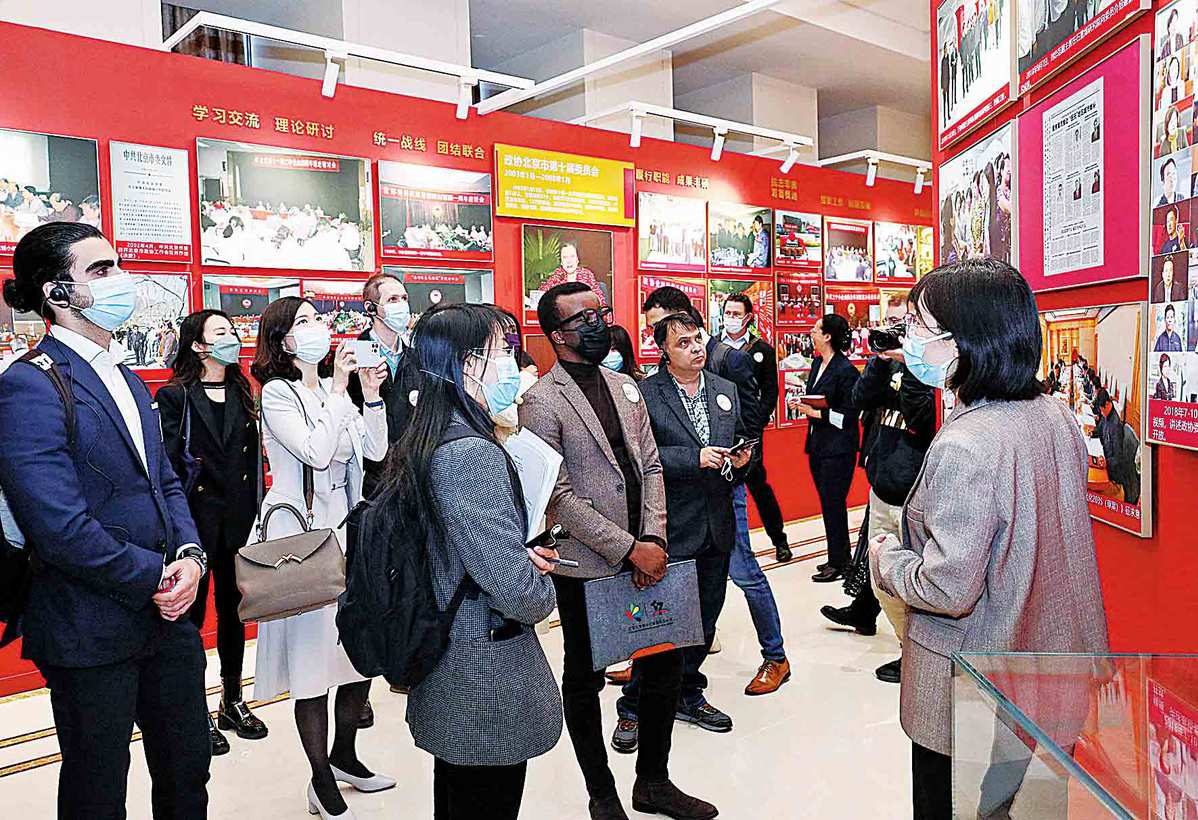Tour teaches expatriates about Chinese democracy


A group of expatriates in Beijing were given a tour of some of the Chinese capital's important political organs on Friday, holding discussions with political advisers and members of China's various political parties to learn more about Chinese-style democracy.
The daylong activity included a visit to the Beijing Municipal Committee of the Chinese People's Political Consultative Conference in the city's subcenter Tongzhou district in the morning, and a tour of the Beijing Non-CPC Political Parties and People's Organizations Building downtown in the afternoon.
The participants consisted of 10 expatriates from 10 countries who are working as university lecturers, entrepreneurs and researchers, among other occupations.
During the excursion, they viewed historical exhibits about the nation's political advisory body and non-Communist parties to learn about China's multiparty cooperation and political consultation system under the leadership of the Communist Party of China.
There were two symposiums held with members of the Beijing Municipal Committee of the CPPCC and also members of non-CPC parties, during which advisers and members of the political parties talked about their experience participating in the deliberation of State affairs.
Many questions were raised by the foreign visitors during the exchanges, including how advisers' suggestions contribute to government decisions, how to become a non-CPC party member and the difference between the CPPCC and the National People's Congress, the country's legislative body.
Zoon Ahmed Khan, a researcher at the Belt and Road Strategy Institute of Tsinghua University who participated in the activity, said she and the other expatriates learned a great deal during the event and called for similar activities in the future.
"We need deeper interaction, and I hope this kind of dialogue continues," she said.
The event was part of a program called Global Young Leaders Dialogue, launched by the Center for China and Globalization, a think tank, and the Academy of Contemporary China and World Studies to promote dialogue and communication among young people from different countries.
Miao Lyu, secretary-general of the think tank, said China's governance model and the logic behind its development have made many people around the world curious.
"The best way to know about a place is to actually go there and talk to the people face to face," she said, adding that the activity could help them better understand the nation and its form of democracy.
Zang Likun, a member of the Beijing Municipal Committee of the CPPCC, said she hopes the visitors can immerse themselves in the development process of the CPPCC, deepen their understanding of China's political system and share their experiences on the tour with their friends.
- All-China Women's Federation sends much-needed relief supplies to Xizang
- More aftershocks expected following deadly Xizang earthquake
- HKSAR chief executive mourns victims of Xizang 6.8-magnitude quake
- Milestones in China's high-speed railway development
- All-China Women's Federation raises over 13 million yuan for quake relief in Xizang
- China's lithium reserves rank second in the world





































